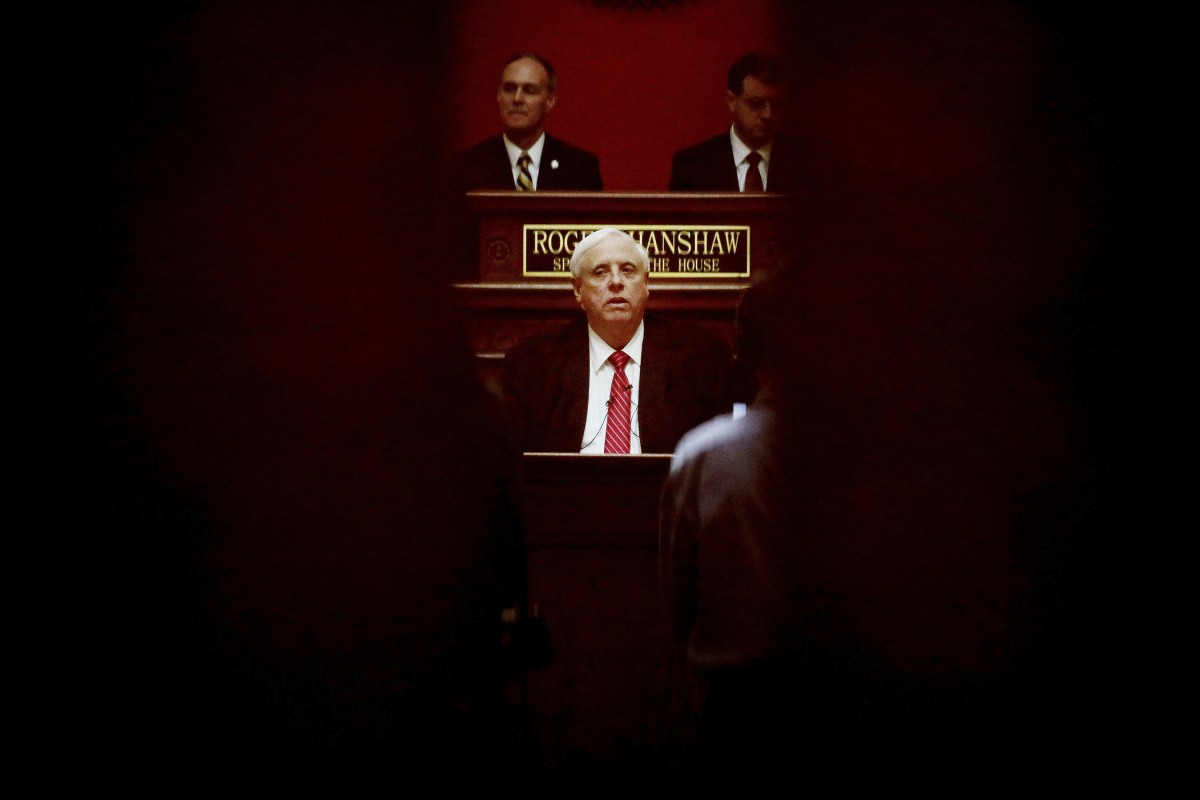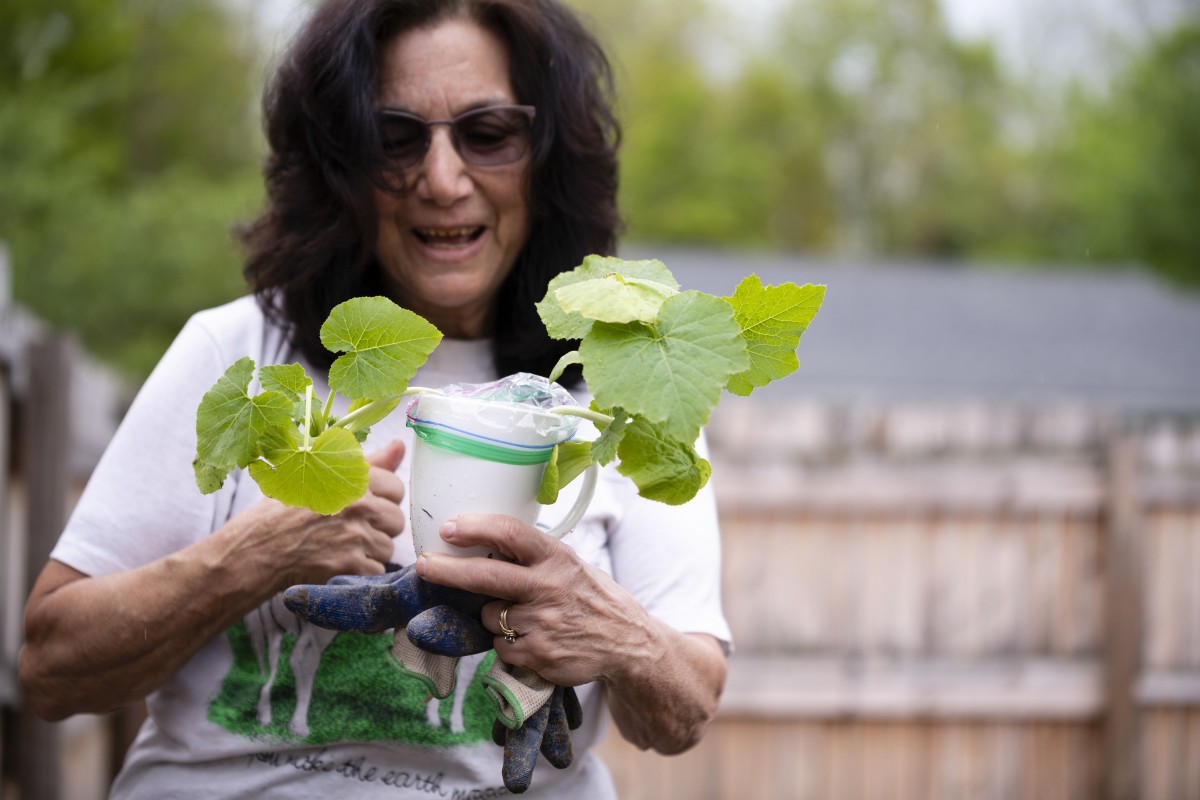Unemployment across the nation is at an all-time high with millions of Americans out of work. In West Virginia, more than 160,000 residents have filed for unemployment since mid-March, according to state officials on May 14.
This has many new college graduates concerned as they try to navigate a now limited job market. While there may be valuable lessons new grads can learn through the pandemic, it will also be a challenging road ahead for some.
When 22-year-old Lucas Shaver graduated from West Liberty University in December with a degree in visual communication design, he had a clear vision of how he wanted life to go.
“I would move back home, and I would work for about a year or two; build up some money with the help of my family, and I would be actually moving out of home,” Shaver said.
Shaver, who’s a friend of WVPB reporter Corey Knollinger, planned to build up his graphic design resume before moving out of state. He even had a potential job lined up after graduation at a shop in Parkersburg.
“We touched base back in like, late January, early February, and I was recommended through a friend of a friend, and they said they really liked my work, and … we were having a really good relationship, and it was really looking up, and then COVID happened, and we’ve basically dropped everything until further notice,” he said.
When Gov. Jim Justice issued his stay-at-home order on March 24, all businesses other than “essential” work, like health care, first responders, grocery stores and banks, were mandated to close temporarily to stop the spread of the coronavirus.
Justice has since begun easing the stay-at-home order for West Virginia, allowing some businesses to reopen if they can comply with certain restrictions, but Shaver said he still hasn’t heard from the Parkersburg company. He has applied for several other jobs without any luck and feels frustrated and worried about the future.
“My main concern is just that whole uncertainty, you know, like, when is it going to happen?”
An Evolving Economic Landscape And How We Do Business
Many new college graduates are feeling this way.
“It’s definitely an uncertain time,” said Melissa Markey, a career advisor at Shepherd University. “And you kind of feel helpless sometimes when students are like, what do I do, I want to move to Texas. What’s the job market gonna be like over there?”
Markey helps guide college seniors through their final year, such as how to write a proper resume and sort out a career path once they graduate. She said her students have felt concerned about the prospects of getting a job given the economic uncertainty across the country.
“The job market’s kind of changing in that we’re going more into … technology, rather than the brick and mortar office buildings. There’s going to be more telecommuting and working from home than there is actually going into the office space, which could be an advantage or disadvantage depending on what you’re looking for in an employment opportunity,” she said.
Markey said new grads will likely have job interviews over video conferencing programs like Zoom or Skype, a trend she predicts may continue even after the pandemic ends.
She also said those first jobs for 2020 grads may not be in their field, but they can provide valuable skills like communication, teamwork and organization that will transfer into their next job.
“The class of 2020 was supposed to come out in probably the best economy in a very long time, with the lowest jobless unemployment rate since 1969,” said economist Dr. Avinandan Mukherjee, Dean of the Lewis College of Business at Marshall University. “And the reality ended up to be exactly the opposite.”
What’s happening to our economy now is sometimes compared to 2008 with the Great Recession, but Mukherjee said one of the biggest differences between the two is that now, the jobs still exist — they may just be out of reach until the pandemic is over.
“Because it is an external shock, so it’s much more akin to … a major hurricane or a major earthquake or major natural disaster, it’s something like that, something that has taken out a lot of businesses and therefore jobs, but it has the potential of coming back,” he said.
But Mukherjee said what work looks like will undoubtedly change. Location will no longer matter when pursuing a job and new graduates will benefit from advancements in technology — but only if they have reliable access to broadband.
“[West Virginia] needs a much higher level of investment in broadband technologies and capabilities right now to be able to cater to the new economy, and it has never been clearer than now that there is no alternative to that,” Mukherjee explained.
If West Virginia can prioritize broadband access, Muhkerjee said, it will result in more companies locating to the state and in a variety of different sectors.
But recessions can also have permanent impacts on the long-term earning power of new graduates, Muhkerjee said.
He points to one study that found that for every 1 percent increase in the unemployment rate, new college graduates suffer a 3 percent income loss as they get their first job.
“And this effect fades out over 10 to 15 years,” he said.
In West Virginia, the unemployment rate in January 2020 was at 5 percent. The governor’s office said it was the lowest unemployment rate in more than a decade. But three months later, and the jobless rate in the state increased to 15.2 percent, according to WorkForce West Virginia.
“This is definitely a black swan event, this is going to redefine the marketplace,” Muhkerjee said, referring to how unanticipated events can have far-reaching and long-lasting impacts. “And the challenge for our students right now that are graduating is how do they make this to their advantage.”
Mukherjee encourages 2020 college graduates to focus on making connections, honing video interviewing skills and keeping an open mind while looking for job opportunities in the era of COVID-19.
But for Shaver, while he said it’s comforting to know jobs could still be there when the pandemic is over, he said the uncertainty of the situation still has him worried.
“You know, I want to have a job,” he said. “I want to be able to put money up and move out and do all the things I wanted to do.”
This article was originally published by West Virginia Public Broadcasting.



